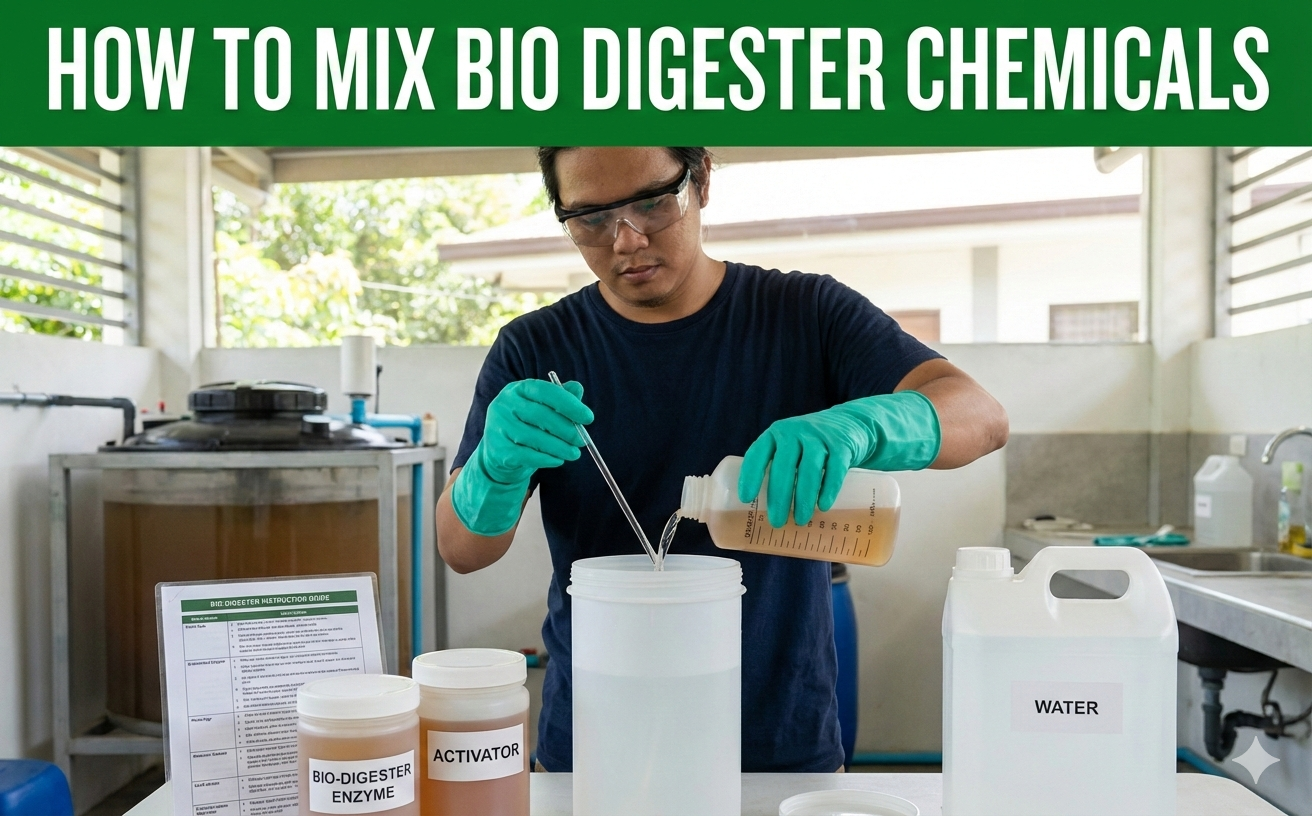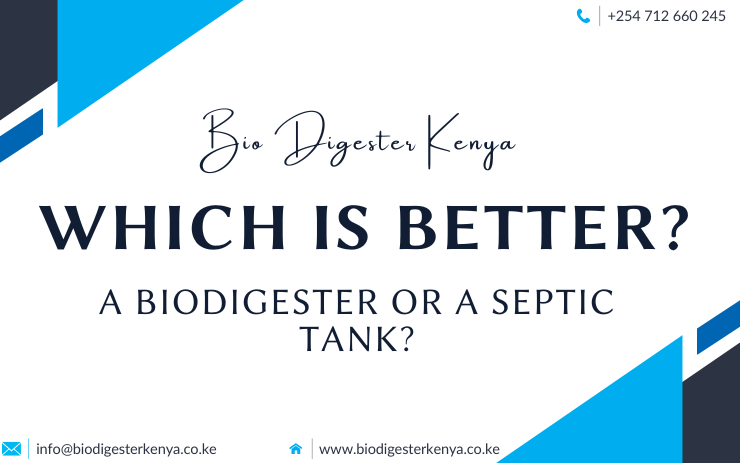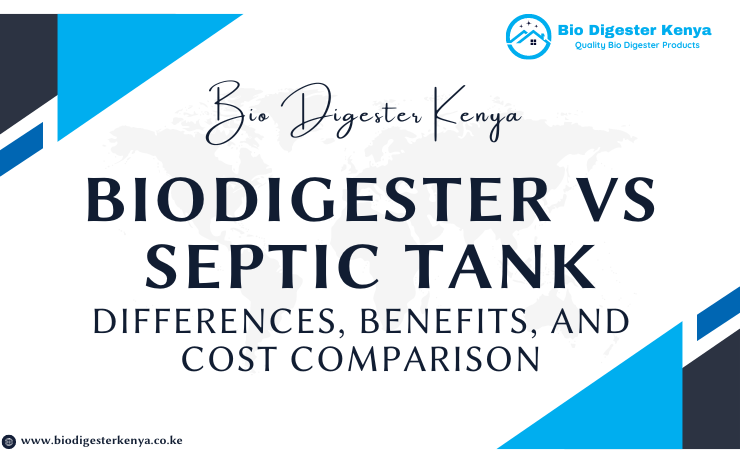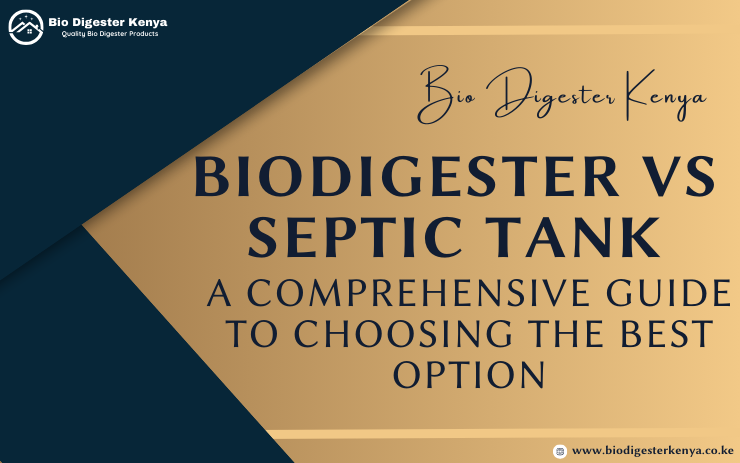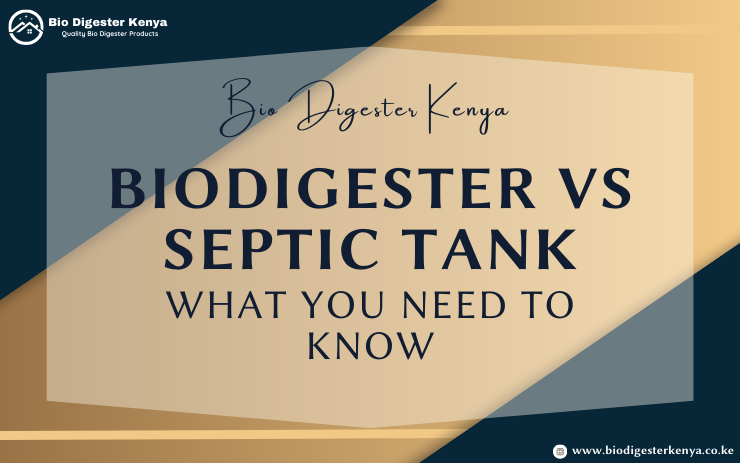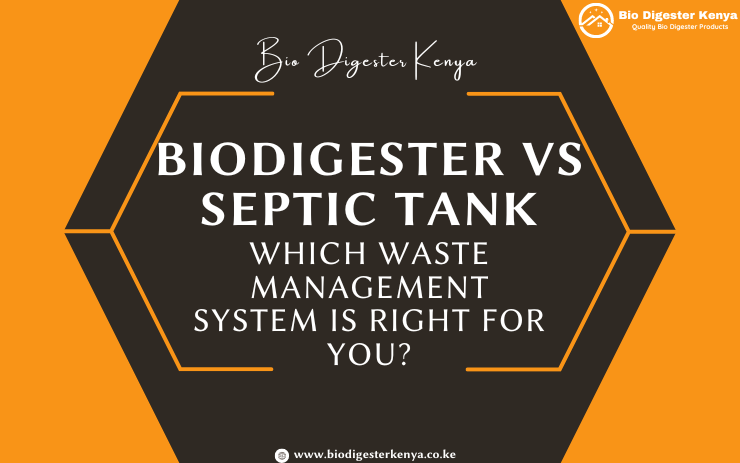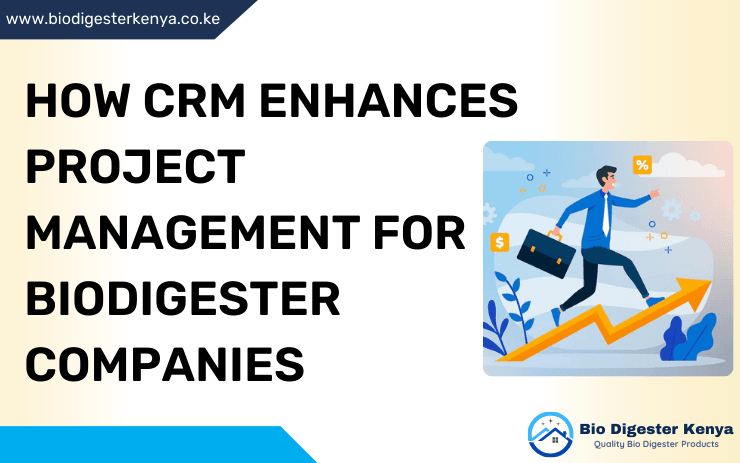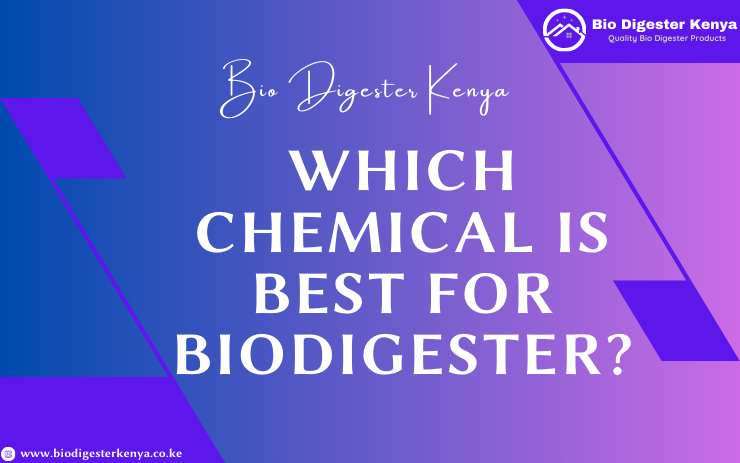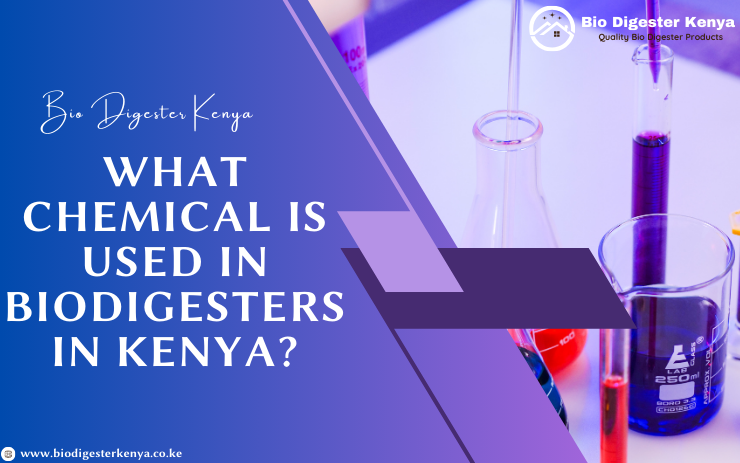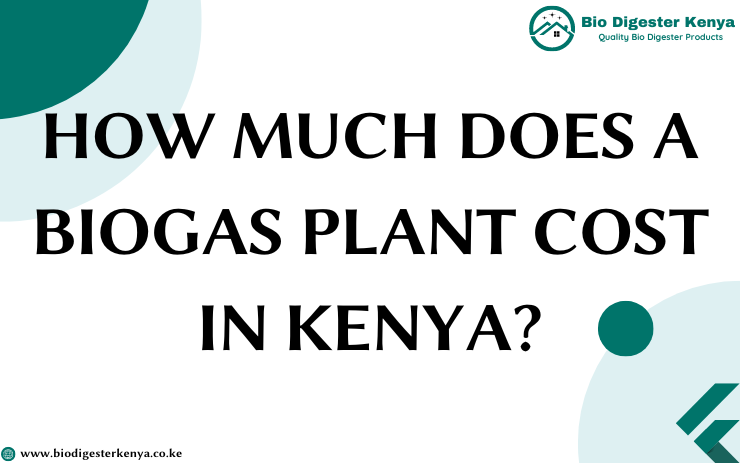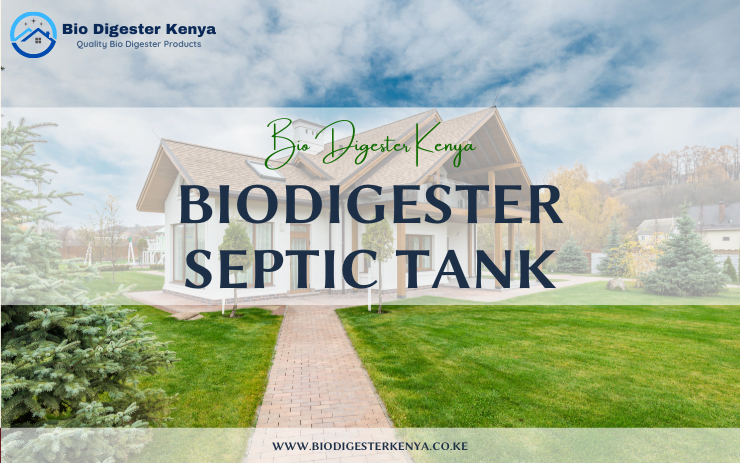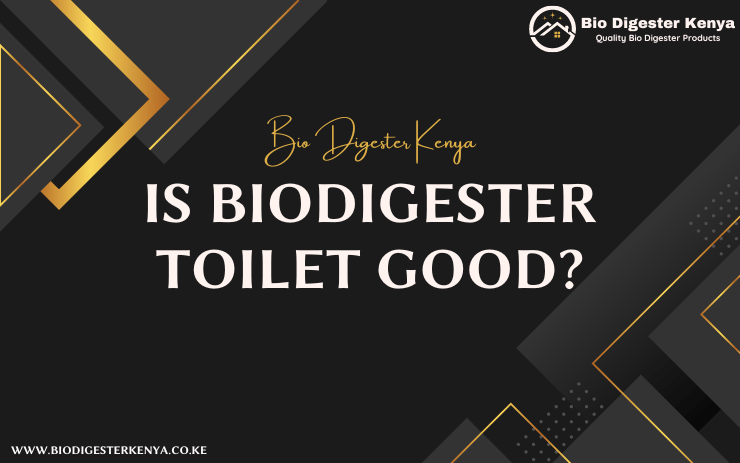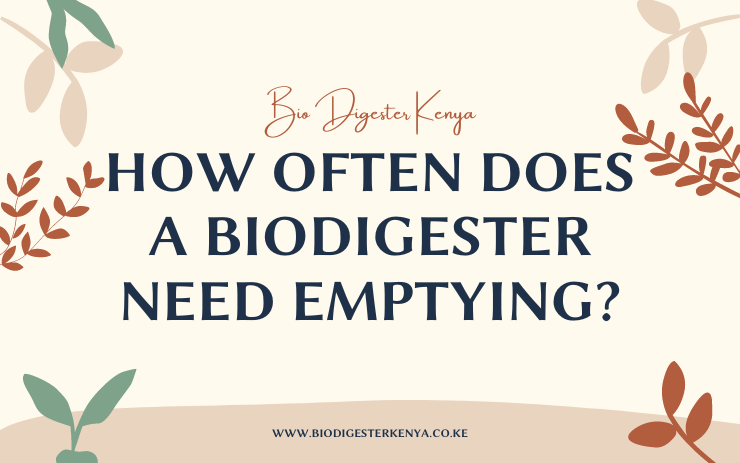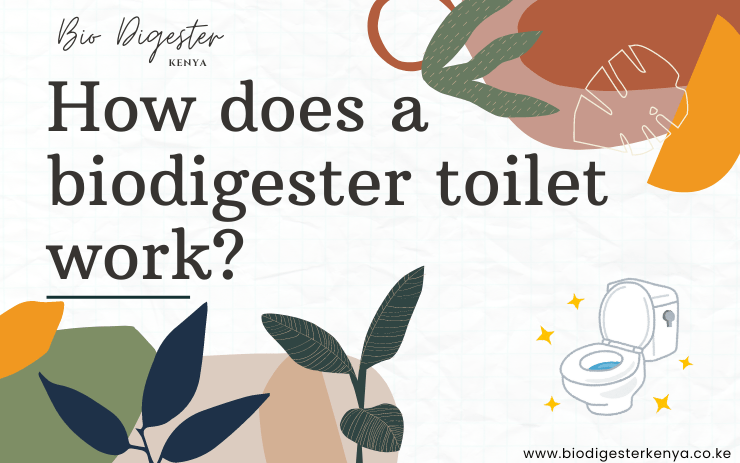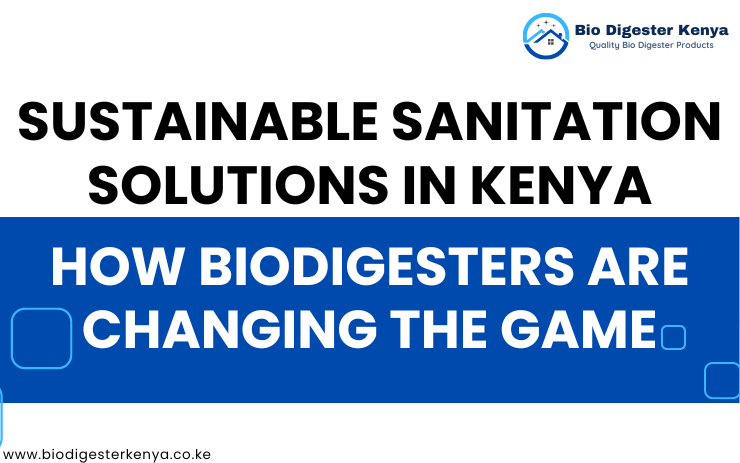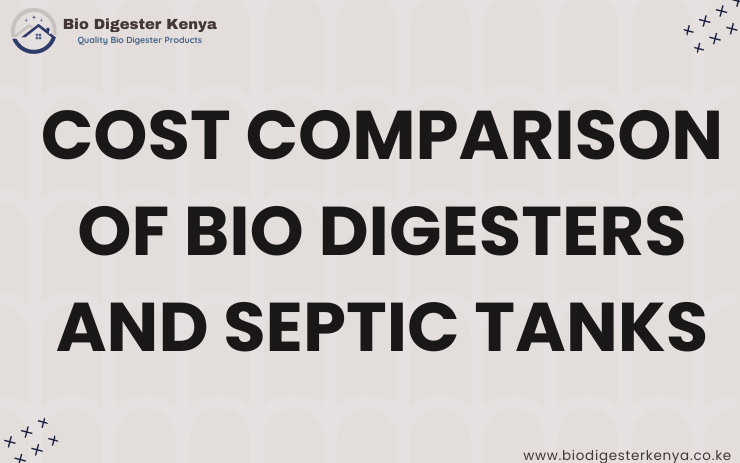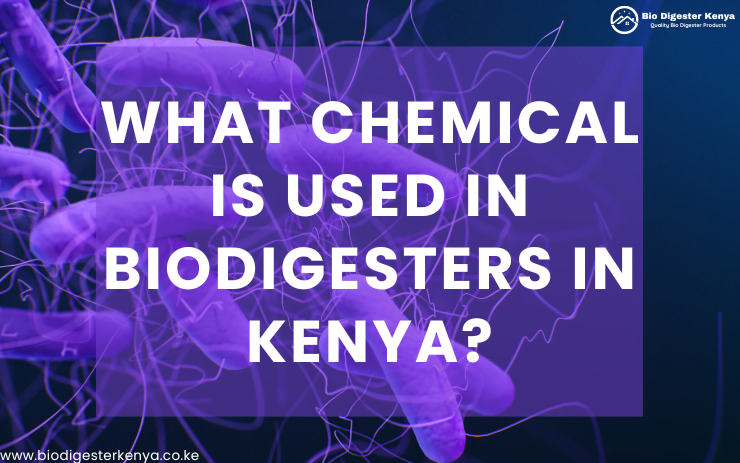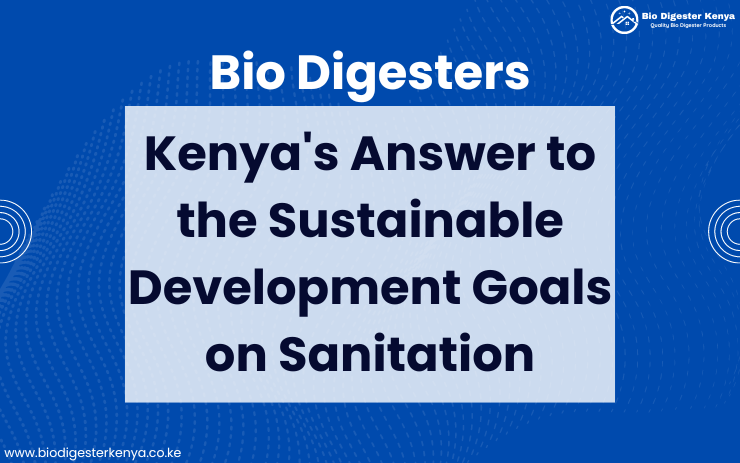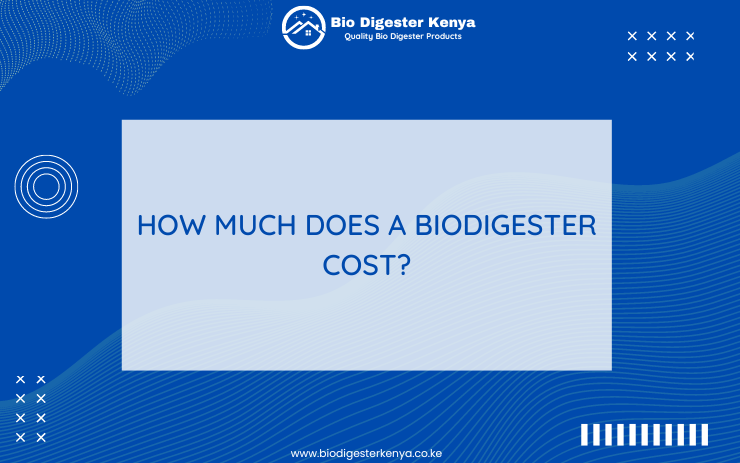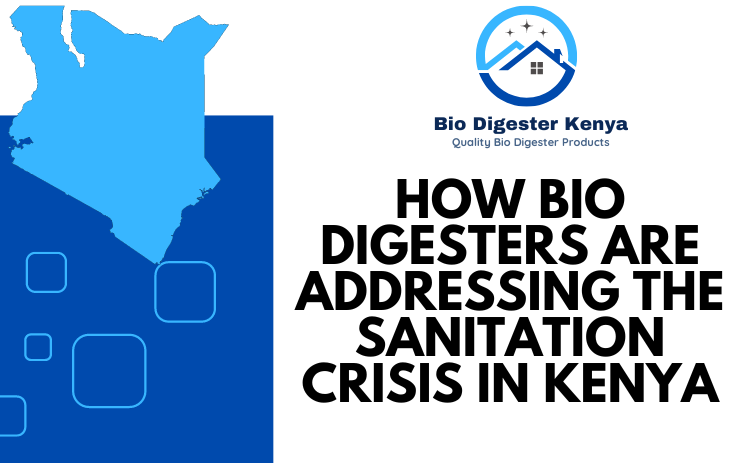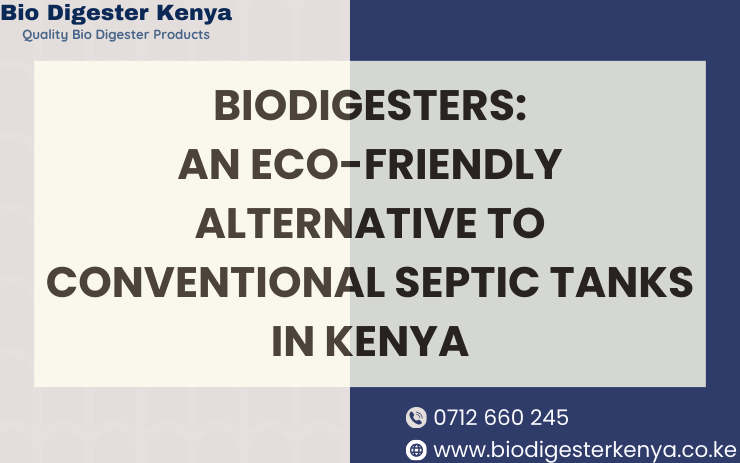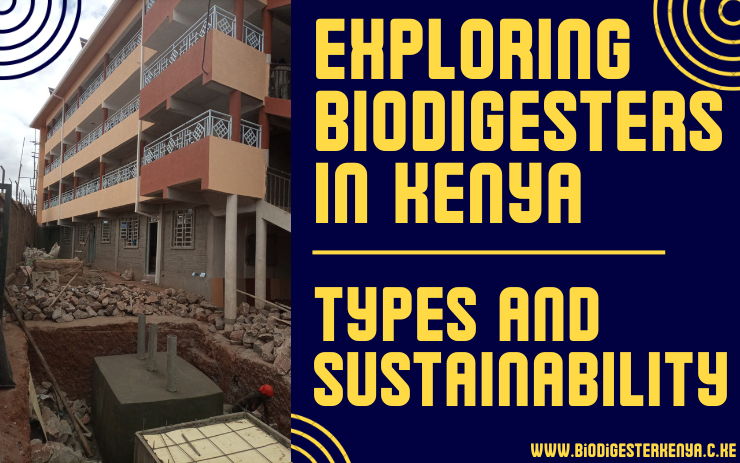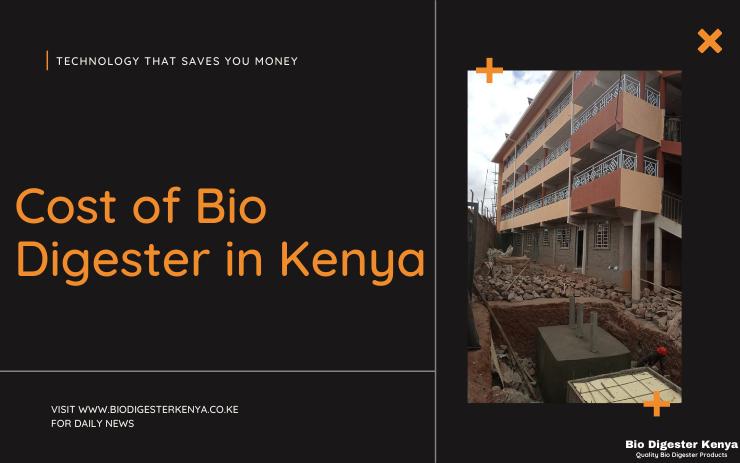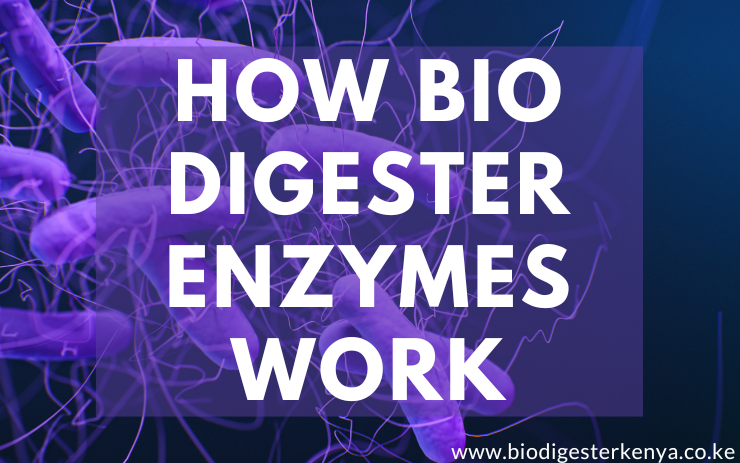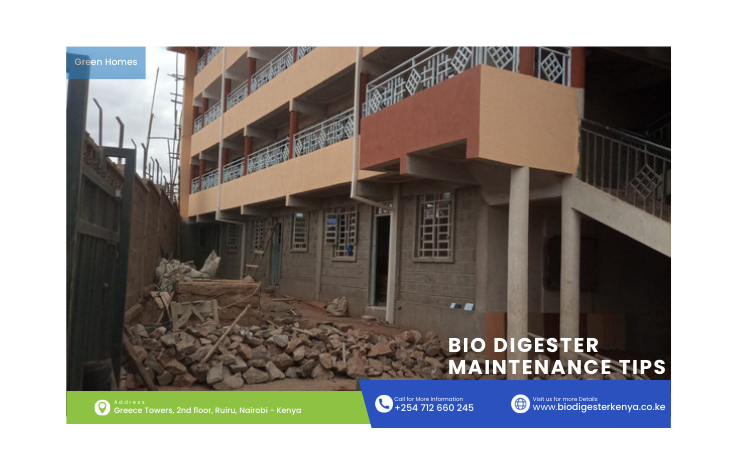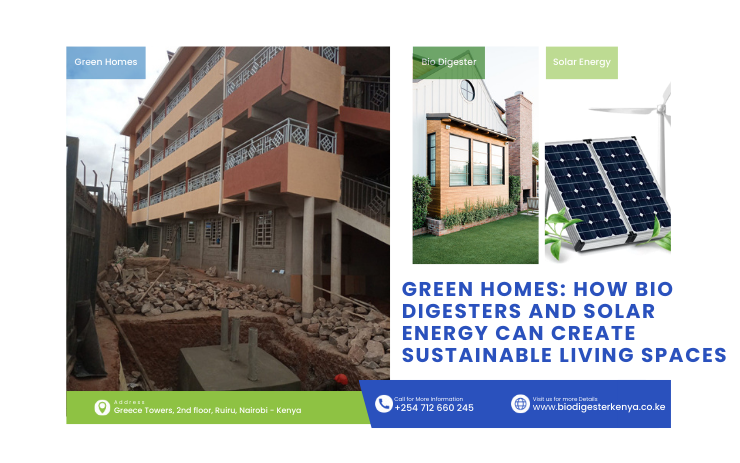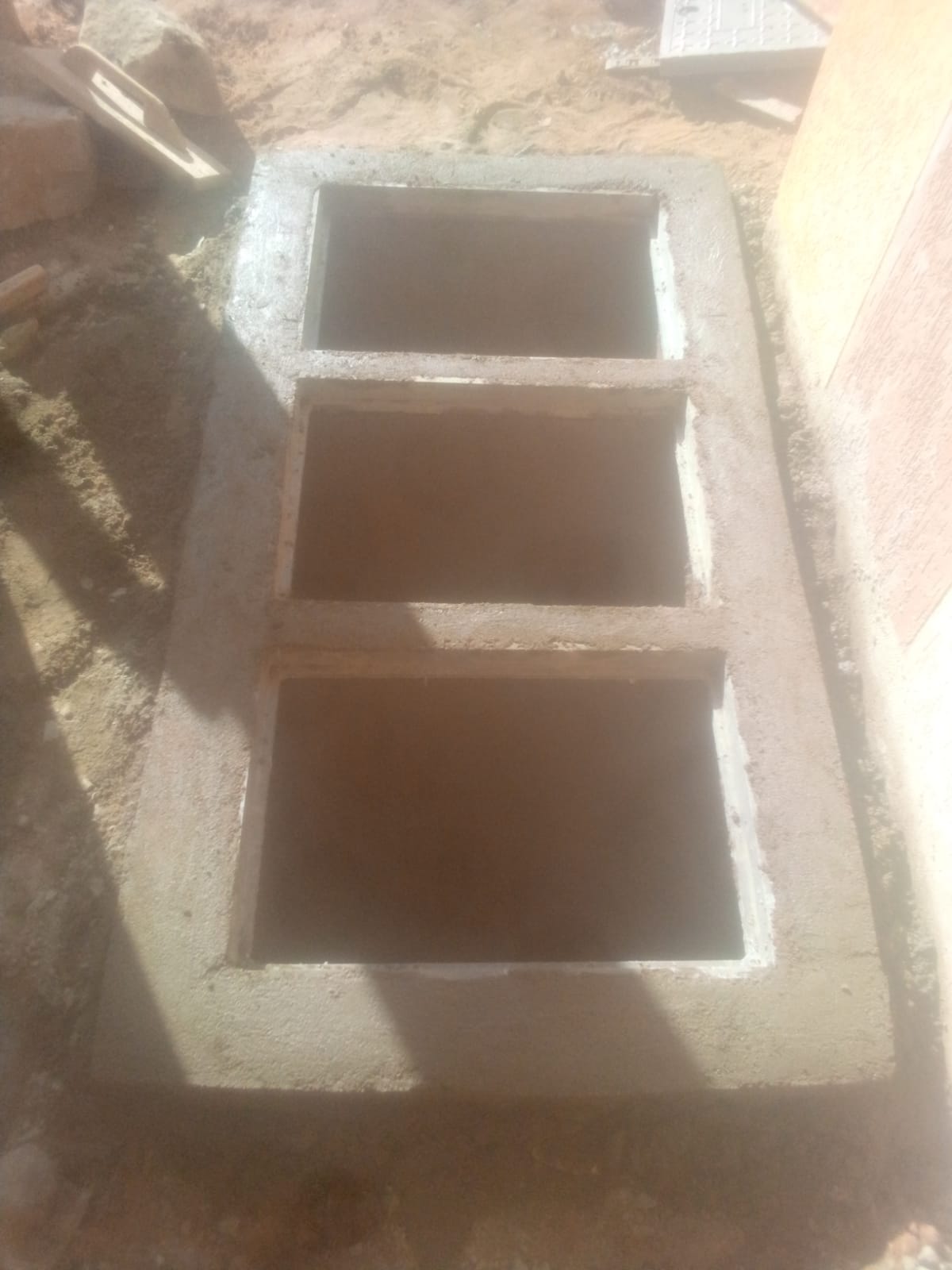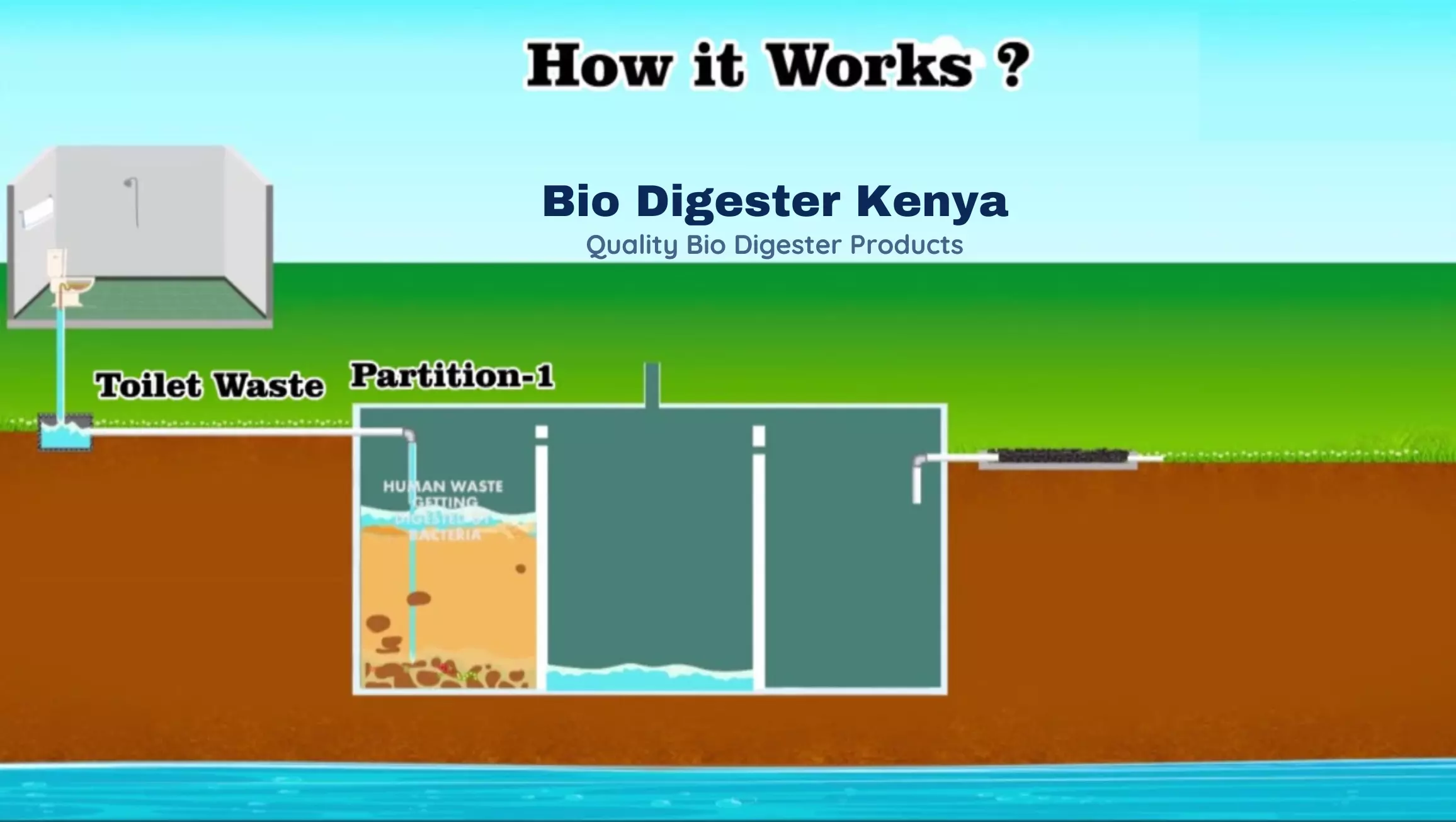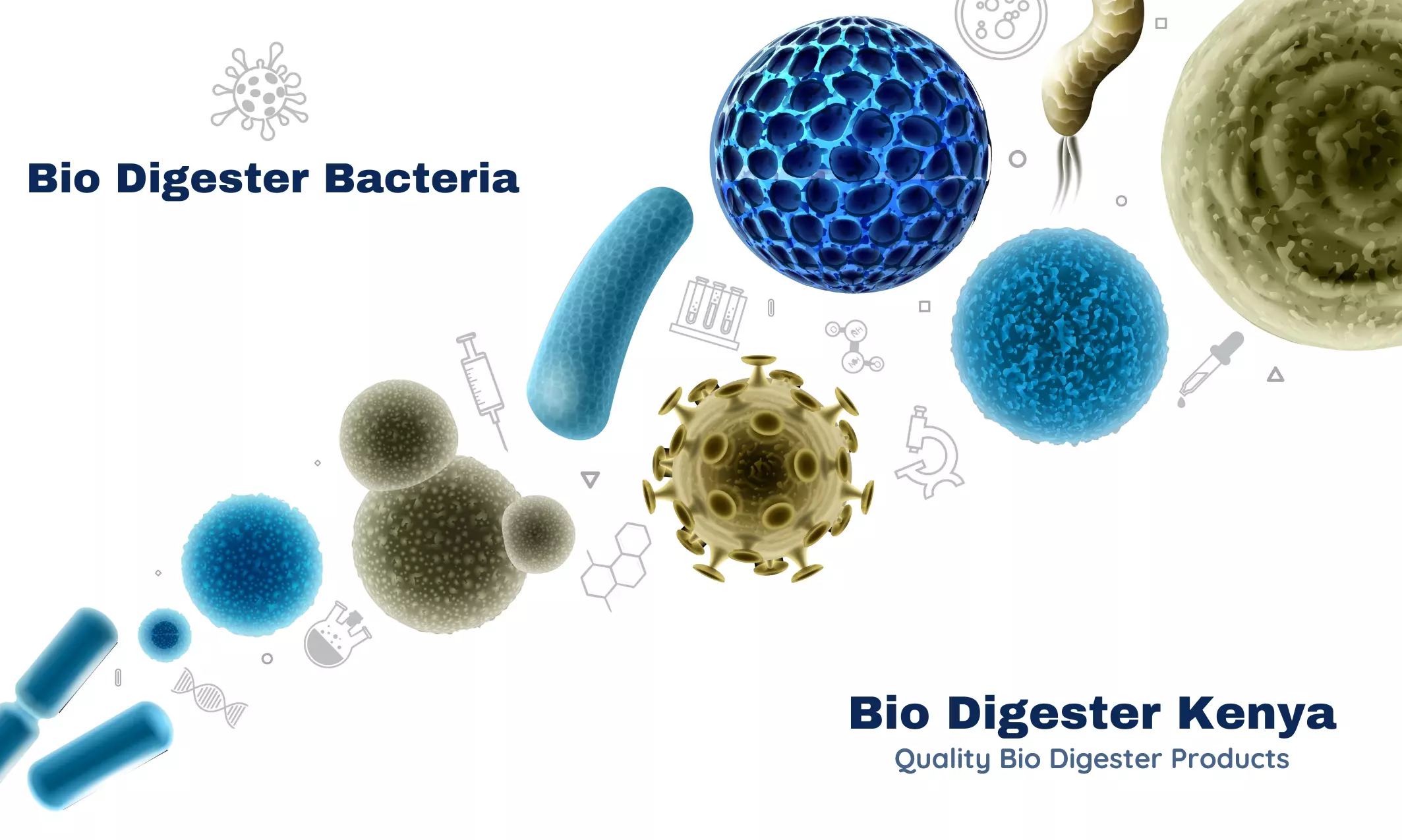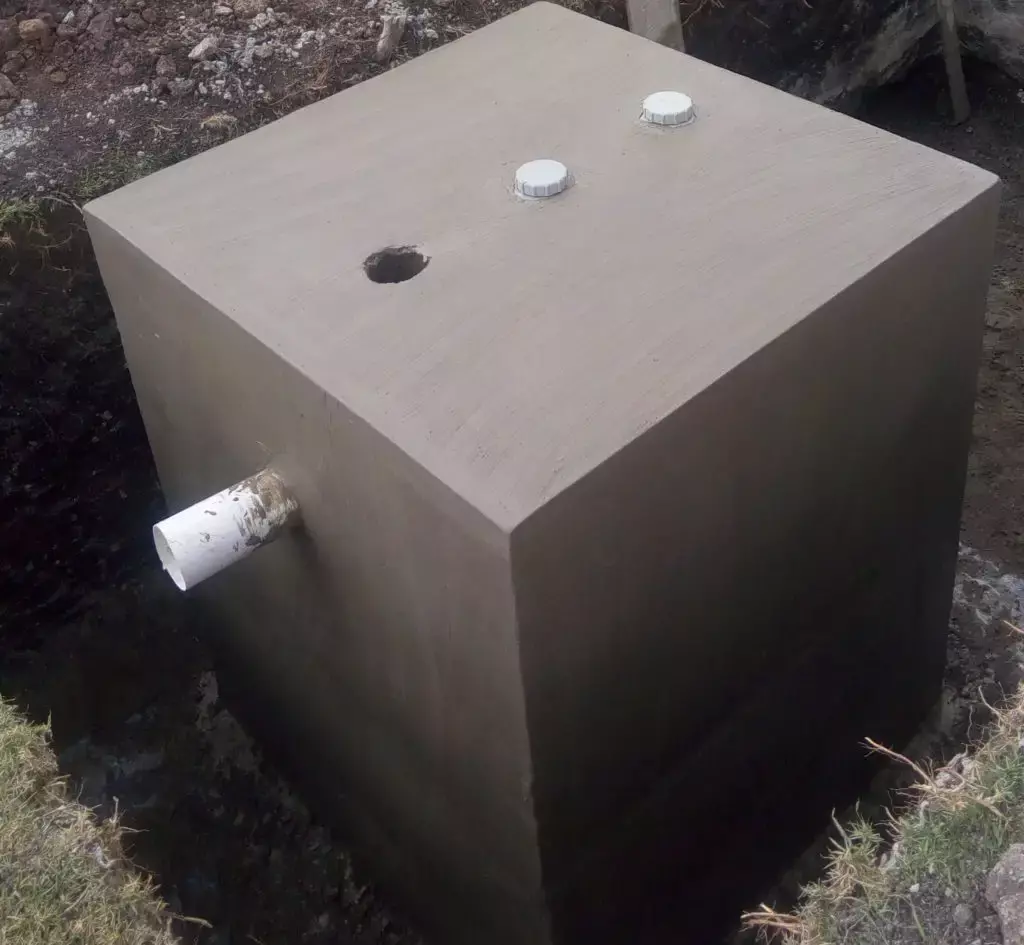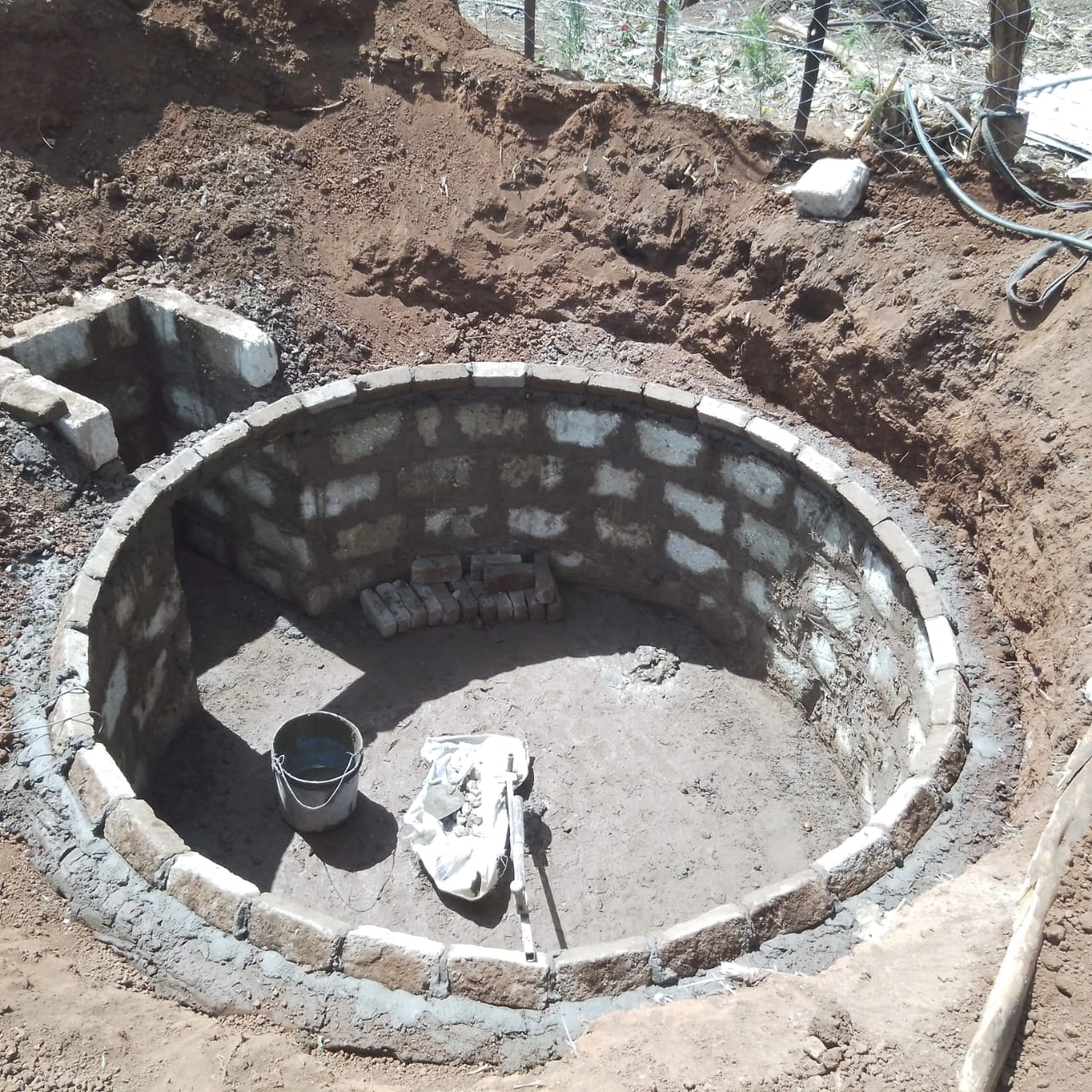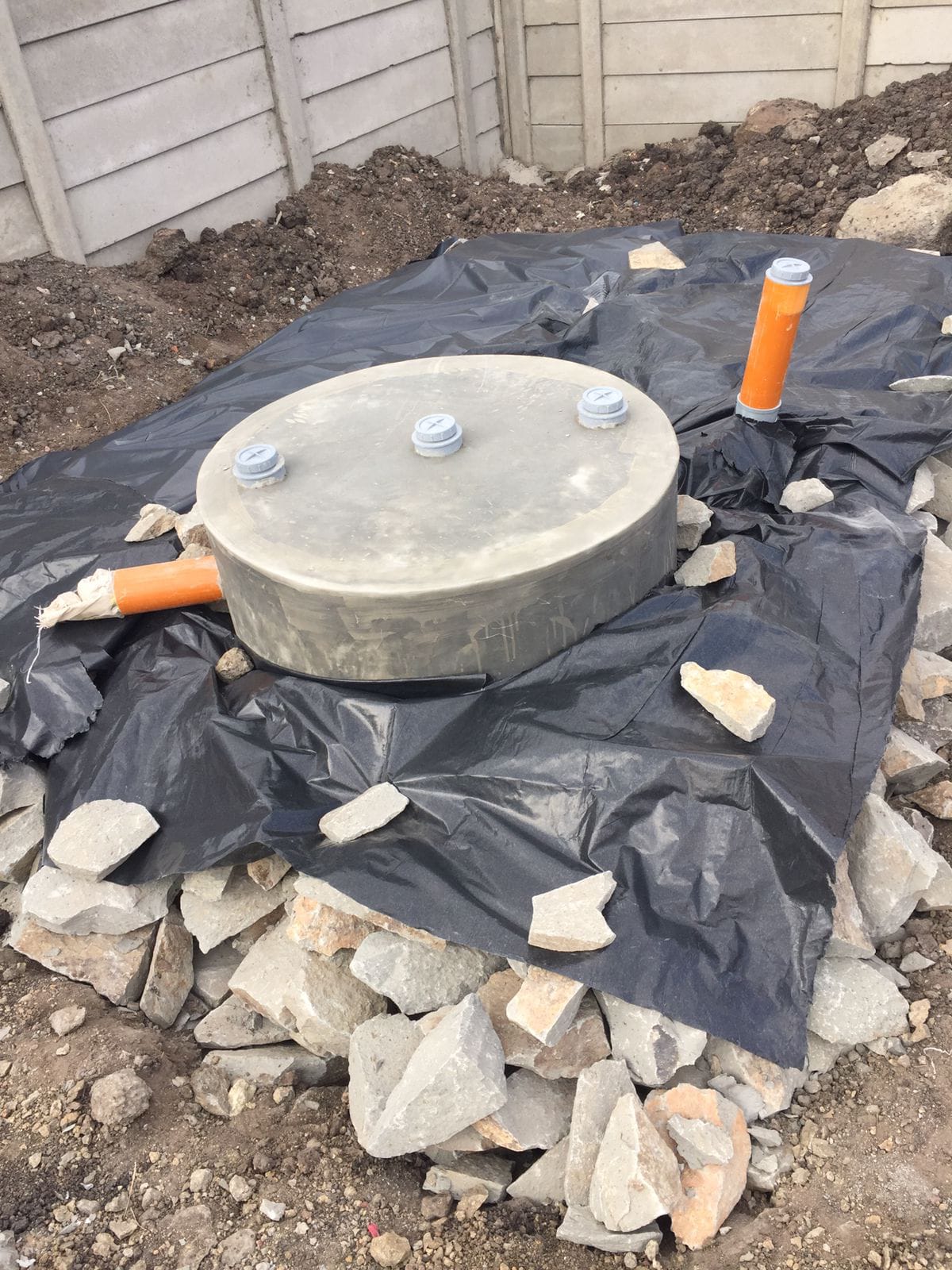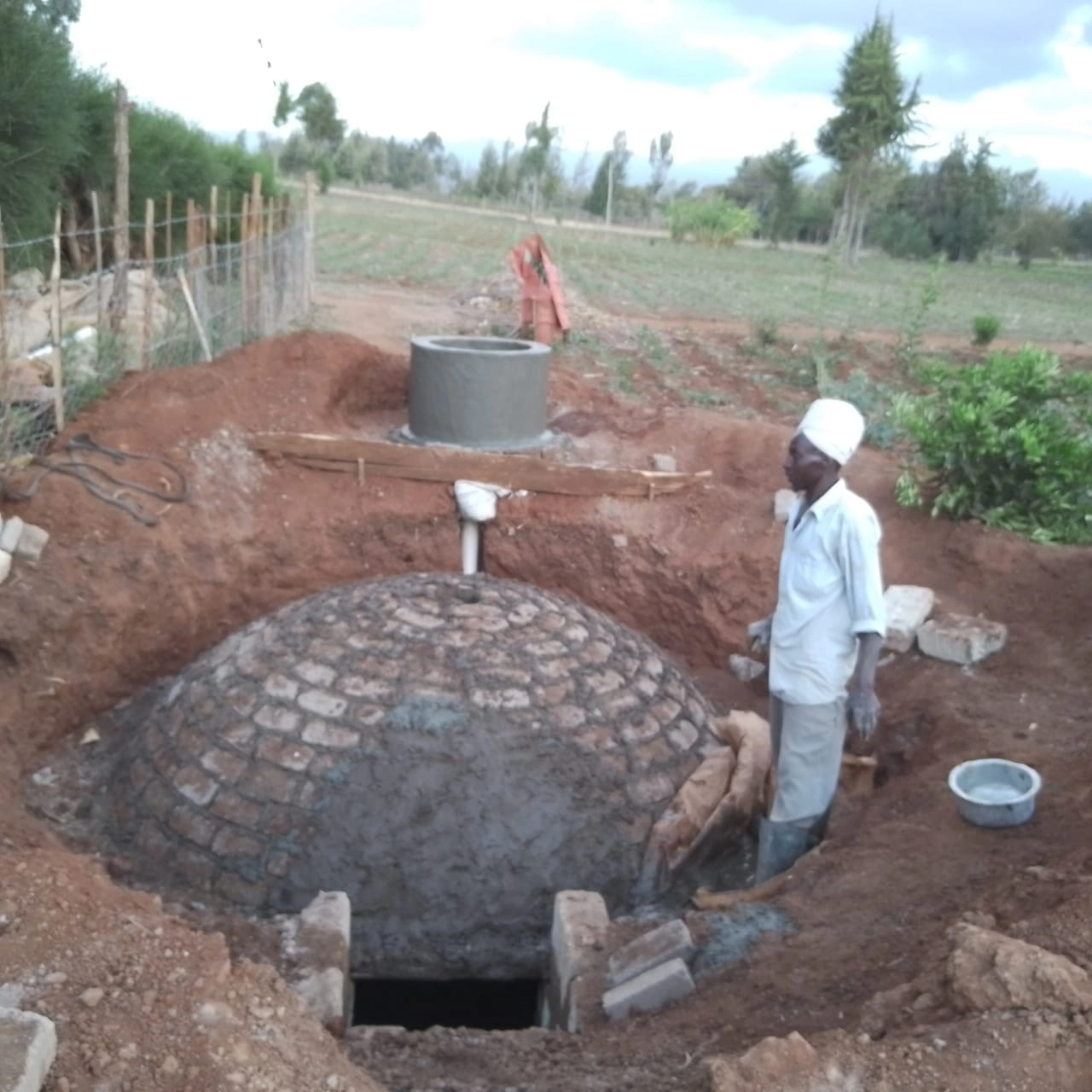In Kenya, effective waste management is more than just a necessity—it’s a critical component of sustainable living.
As more people seek eco-friendly and efficient solutions for handling human waste, the debate between biodigesters and septic tanks becomes increasingly relevant.
Biodigesters have emerged as a modern, innovative alternative to traditional septic tanks, offering numerous advantages that can make a significant difference in both residential and commercial settings.
This article explores why biodigesters are gaining popularity and why they might be the perfect solution for your waste management needs.
Whether you’re considering an upgrade or installing a new system, understanding the benefits of biodigesters over septic tanks can guide you toward a more sustainable future.
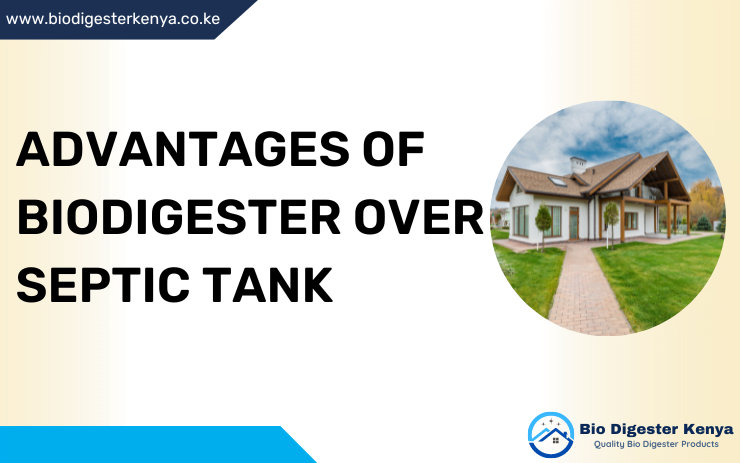
Introduction
In Kenya, waste management solutions are evolving, and homeowners and business owners are increasingly seeking sustainable options.
Two of the most common systems for managing human waste are biodigesters and septic tanks.
But which one offers the most advantages? In this article, we’ll dive into a comprehensive comparison, highlighting why biodigesters are often the superior choice for both residential and commercial applications.
Whether you’re building a new property or looking to upgrade an existing system, understanding these differences can guide you toward making an informed decision.
Understanding the Biodigester System
What Is a Biodigester?
A biodigester is an innovative system designed to treat human waste by using natural processes.
Unlike traditional septic tanks, biodigesters break down waste using anaerobic bacteria, resulting in the conversion of waste into water, carbon dioxide, and biogas.
This system is particularly well-suited for areas where space is limited or where environmental impact is a concern.
How Biodigesters Work
Biodigesters operate by channeling human waste into a sealed chamber where anaerobic bacteria break down the organic material.
The process produces biogas, which can be used for energy, and treated water that is safe to release into the environment.
The biodigester enzymes play a crucial role in accelerating this breakdown process, ensuring efficient and complete waste treatment.
Components of a Biodigester
A typical biodigester includes a collection chamber, anaerobic digestion chamber, and an outlet for treated water.
The system is designed to be low-maintenance, requiring minimal intervention once installed.
The use of biodigester enzymes helps maintain the balance of bacteria needed for effective waste processing.
Understanding the Septic Tank System
What Is a Septic Tank?
A septic tank is a traditional waste management system that separates solids from liquids, allowing the liquid waste to be drained into a leach field where it is absorbed by the soil.
The solids settle at the bottom of the tank and must be periodically removed to prevent overflow and system failure.
How Septic Tanks Work
Septic tanks rely on gravity to separate waste into three layers: scum, effluent, and sludge.
The effluent, which is the liquid portion, flows out into a drain field, while the scum and sludge remain in the tank and need regular pumping to avoid blockages.
Components of a Septic Tank
Septic tanks are typically made of concrete, fiberglass, or plastic and include an inlet pipe, a settling chamber, and an outlet pipe leading to the drain field.
Over time, the sludge buildup requires professional cleaning to maintain the system’s functionality.
Comparative Analysis: Biodigester vs. Septic Tank
Environmental Impact
Eco-Friendliness of Biodigesters
Biodigesters are a green solution for waste management.
They produce biogas, which can be used as a renewable energy source, and the treated water is safe for the environment.
This system significantly reduces the carbon footprint associated with traditional waste management methods.
Environmental Concerns with Septic Tanks
Septic tanks can pose environmental risks if not properly maintained.
Leaks or overflows can contaminate groundwater, and the system doesn’t offer any energy recovery options, making it less sustainable in the long term.
Space Requirements
Space Efficiency of Biodigesters
Biodigesters require less space compared to septic tanks, making them ideal for urban areas or properties with limited land.
Their compact design and ability to be buried underground further enhance their space-saving benefits.
Space Needs for Septic Tanks
Septic tanks, combined with the necessary drain fields, can take up significant space.
This requirement can be a limiting factor in densely populated areas or on small plots of land.
Cost Considerations
Installation Costs
The initial installation cost of a biodigester may be higher than that of a septic tank due to the advanced technology and specialized components involved.
However, this upfront investment often leads to greater savings in the long run.
Maintenance and Operational Costs
Biodigesters are designed to be low-maintenance, with fewer issues related to blockages or overflows.
On the other hand, septic tanks require regular pumping and maintenance, which can become costly over time.
Health and Safety
Safety Benefits of Biodigesters
Biodigesters eliminate many health risks associated with waste management.
Since the waste is treated on-site and converted into harmless byproducts, there is minimal risk of contamination or disease transmission.
Health Risks of Septic Tanks
Septic tanks, if not properly maintained, can become a breeding ground for harmful bacteria and pathogens.
Leaks or overflows can pose significant health risks to the surrounding community.
Longevity and Durability
Lifespan of Biodigesters
Biodigesters are built to last, with many systems functioning efficiently for decades with minimal maintenance.
The materials used in their construction are designed to withstand harsh conditions, ensuring long-term durability.
Durability of Septic Tanks
Septic tanks also have a long lifespan, but their durability is highly dependent on regular maintenance.
Without proper care, they can deteriorate over time, leading to costly repairs or replacements.
Advantages of Biodigesters Over Septic Tanks
Reduced Maintenance Requirements
One of the biggest advantages of biodigesters is their low maintenance needs.
Once installed, they require minimal intervention, saving time and money for property owners.
Lower Environmental Footprint
Biodigesters are far more eco-friendly than septic tanks.
By converting waste into biogas and clean water, they reduce pollution and contribute to a healthier environment.
Space Efficiency
For properties with limited space, biodigesters offer a compact and efficient solution that doesn’t require large drain fields like septic tanks do.
Long-Term Cost Savings
Although biodigesters may have a higher initial cost, they offer significant long-term savings through reduced maintenance and operational costs.
Health and Safety Improvements
Biodigesters provide a safer waste management solution by minimizing the risk of contamination and disease, making them a healthier choice for both residential and commercial properties.
Why Choose Bio Digester Kenya?
Our Expertise in Biodigester Design and Installation
At Bio Digester Kenya, we pride ourselves on our extensive experience in designing and installing biodigesters tailored to the unique needs of our clients.
Whether you’re looking for a solution for a small home or a large commercial space, we have the expertise to deliver.
Tailored Solutions for Residential and Commercial Spaces
We understand that every property is different, which is why we offer customized biodigester systems that meet your specific requirements.
Our solutions are designed to maximize efficiency and minimize costs.
High-Quality Biodigester Enzymes
In addition to our installation services, we provide high-quality biodigester enzymes that ensure the efficient breakdown of waste, enhancing the performance of your system.
Conclusion
Biodigesters are revolutionizing waste management in Kenya, offering a sustainable, cost-effective, and health-conscious alternative to traditional septic tanks.
With reduced maintenance needs, a lower environmental footprint, and long-term cost savings, it’s clear why more and more people are making the switch.
At Bio Digester Kenya, we’re committed to helping you transition to a more sustainable future with our expertly designed and installed biodigester systems.
Ready to upgrade your waste management solution?
FAQs
How often should a biodigester be emptied?
- Unlike septic tanks, biodigesters rarely need emptying, making them a low-maintenance option.
Can biodigesters be used in commercial spaces?
- Yes, biodigesters are ideal for both residential and commercial applications, offering scalability and efficiency.
What is the cost difference between a biodigester and a septic tank?
- While biodigesters may have a higher initial cost, they offer significant long-term savings due to reduced maintenance needs.
How do biodigesters contribute to environmental sustainability?
- Biodigesters convert waste into biogas and clean water, reducing pollution and contributing to a healthier environment.
Why should I choose Bio Digester Kenya for my waste management needs?
- With our expertise, tailored solutions, and high-quality enzymes, we provide the best biodigester systems in Kenya.
